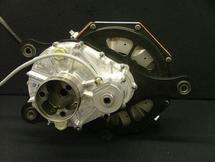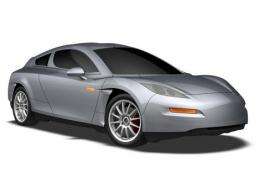Lightweight electric motor on track

A lightweight electric motor designed by Oxford University engineers is to power a new four-seat coupé, with track tests scheduled for the end of 2009.
Isis Innovation, the technology transfer company for Oxford University, is managing the intellectual property and commercial agreements for the electric motor project.
Engineering firm Delta Motorpsort are aiming to install the motor in their coupe for track tests later this year.
Dr Malcolm McCulloch of the Electrical Power Group at Oxford's Department of Engineering Science said: ‘The motor can achieve high torque for its weight, which ultimately means a smaller and cheaper motor. Torque is the twisting force that accelerates the car, and the peak torque we’re aiming for is 500Nm from 25kg.’
‘We’ve optimised the materials and design, so that the motor is lighter and more effective, giving half the volume and twice the torque for the same power output.’

Over 50 per cent of the world’s electricity powers electric motors, so it’s extremely important to improve the efficiency of motors.
Dr Malcolm McCulloch Nick Carpenter, technical director of Delta Motorsport has worked for F1 teams, but also programmes in environmentally related technologies and aerodynamic analysis. He said: ‘We believe electric motors are the only way forward for road cars. All road cars will be driven electrically, regardless of how the energy is stored in the vehicle.’
‘It is an incredibly exciting time for the automotive market. There hasn’t been a rate of change like this since the first few years, and we think that electric drive is going to be the one common theme. We’re delighted to have been so involved in the design of a viable, cost-effective, high torque density motor.’
The Oxford University Challenge Seed Fund is supporting the project with investment to build a prototype for use in test cars.
Dr McCulloch added: ‘The motor was developed for the Morgan Lifecar in 2008, and we now have funding to adapt it for high-performance electric vehicles, and we’re also looking at aerospace, renewable and industrial use.’
‘Over 50 per cent of the world’s electricity powers electric motors, so it’s extremely important to improve the efficiency of motors. This motor can be adapted to achieve better performance in a whole range of applications.’
Provided by Oxford University (news : web)

















